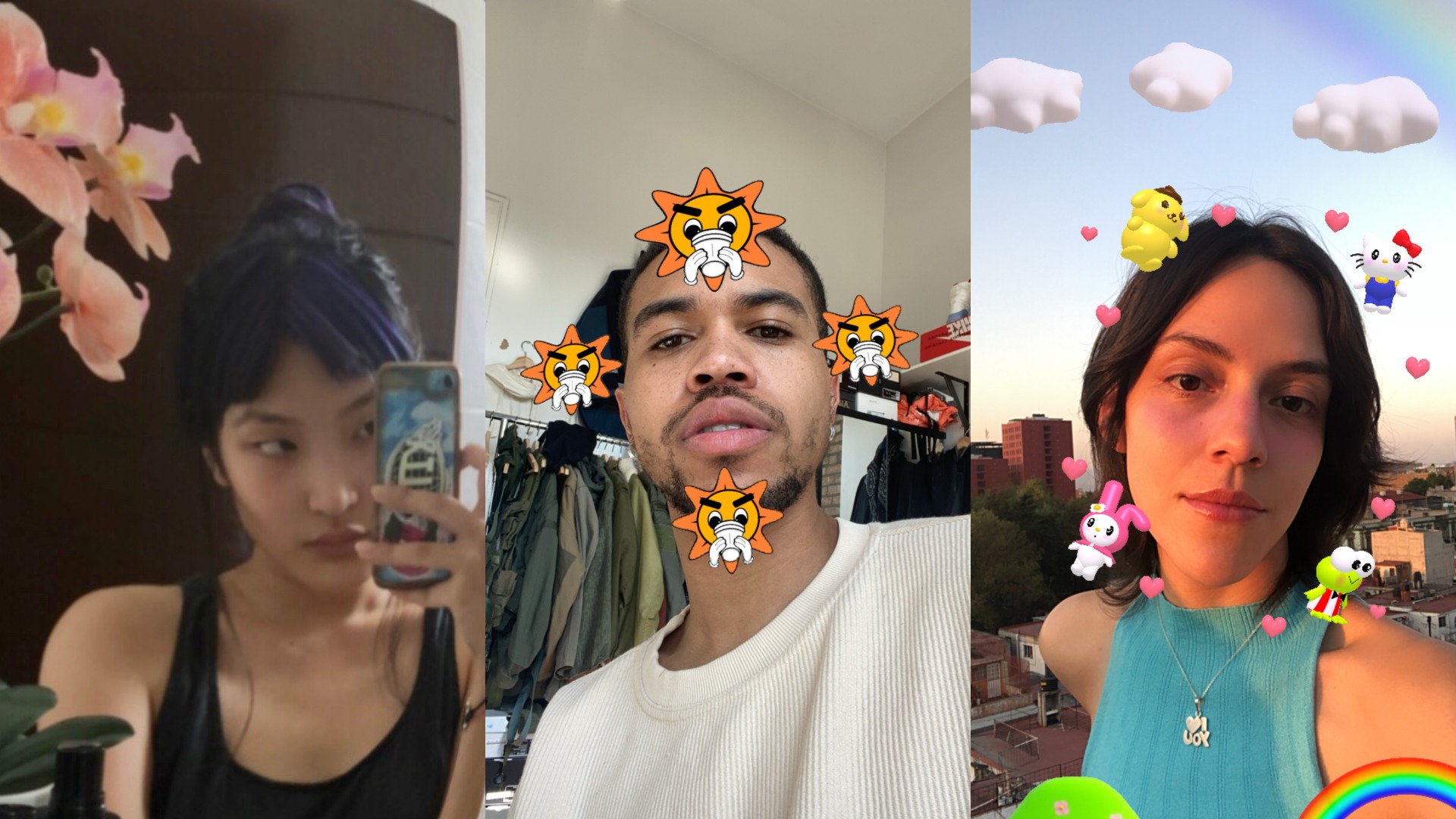Is there anything else to read these days aside from guides of what to do in isolation? Essentially, no. You can either read hard news or look at pictures of people with nicer apartments than you watering their plants and doing extravagant stretches. In the interest of diversifying this offering, i-D asked some people we actually trust what they’re up to at home, without a billionaire’s budget, and with perhaps the same worries that you or I are dealing with.
We also asked them what it’s like where they live. In Mexico City, art director Carla Valdivia Nakatani writes that due to the lack of infrastructure, “historically, it’s fallen on communities, not the government or employers to support and care for each other.” Meanwhile, in Kuala Lumpur, writer Kelly Lim says: “The word for crisis in Chinese is 危机, which also bears the meaning of opportunity and in this case that has never been truer.” Read more below.
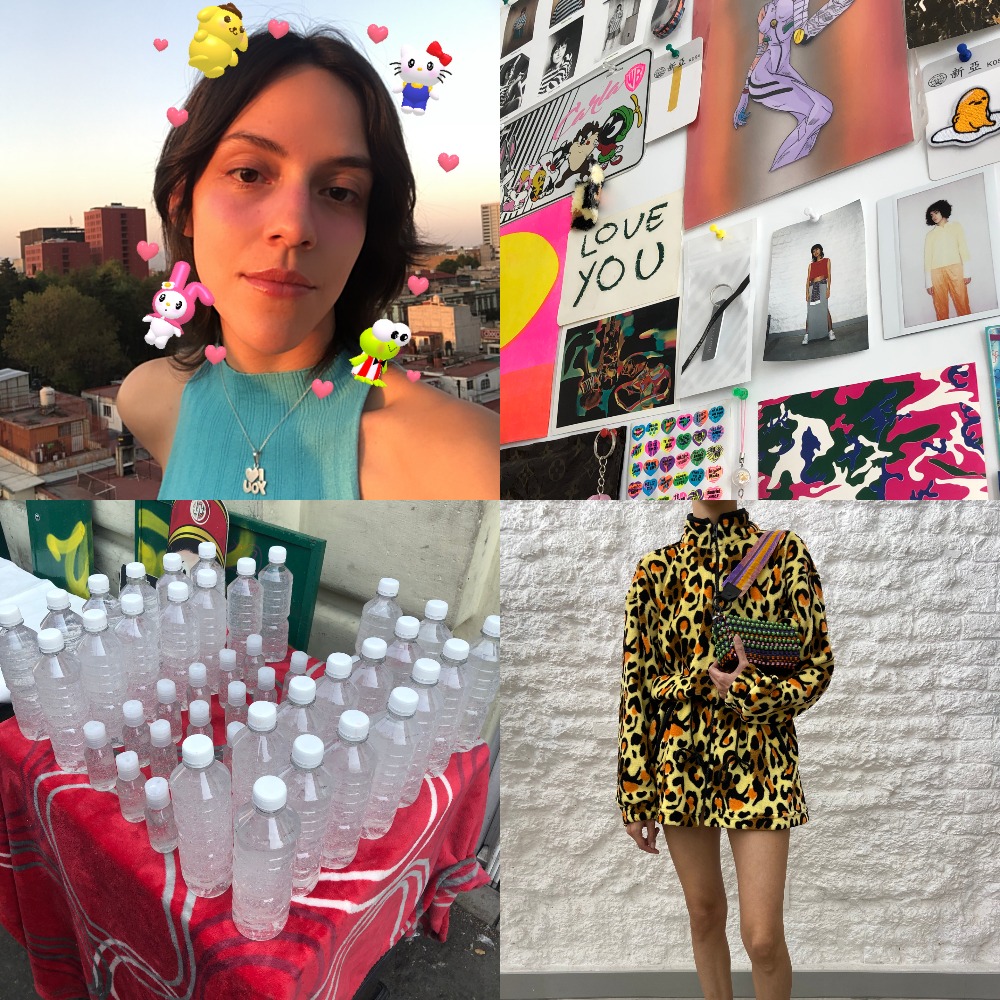
Carla Valdivia Nakatani, art director and co-owner of Hi-BYE store, Mexico City
Can you tell us a little bit about the COVID-19 crisis in your area?
I’m in Mexico City and unfortunately, the government didn’t take any action until recently. What’s kinda sad, but also cool, is that some individuals are taking matters into their own hands and making a difference without help or instruction from the government.
On a city-wide scale, I worry about our fragile healthcare system that is sure to collapse if those who can, don’t stay at home. Take this seriously and put your privilege to use people! Being an emerging economy, there is a large part of our population that lives paycheck to paycheck (which in Mexico is every two weeks). Some people can’t afford to stay home, which creates a very difficult position for everyone. In the past, it’s fallen on communities, not the government or employers to support and care for each other.
This time, it’s a tough line to walk because it is your social responsibility to stay home, but it’s also important to continue to buy from local vendors whenever possible.
My stepmum always quotes Bruce Lee: “Be water”, and now more than ever — that is TRUE.
How has COVID-19 affected your life and work?
For about a year now, I’ve been splitting my time between running my graphic design studio from home and tending to Hi-BYE, a shop I opened with two dear friends. Being an independent studio means that I have to self motivate and organise as part of my everyday, so in that aspect, not much has changed. Fortunately, some of my clients are still working, but at a slower pace — which means there’s more time between deadlines and room to step back from ongoing projects that can benefit from the gift of hindsight. I just can’t go out for inspiration anymore! I’m gonna have to retreat to my books for a while. In terms of our shop, we decided to close about a month ago, which was hard to do. I love the interaction with our customers, I miss it dearly!
What have you learned during this time?
Damn, there is so much! The main lesson I’m taking from this is that we have to be open and flexible. There isn’t any room for resistance or attachment to the way things were before this. All control has left us and we have to change our minds every day, adapt and speculate without panicking. My stepmum always quotes Bruce Lee: “Be water”, and now more than ever — that is TRUE.
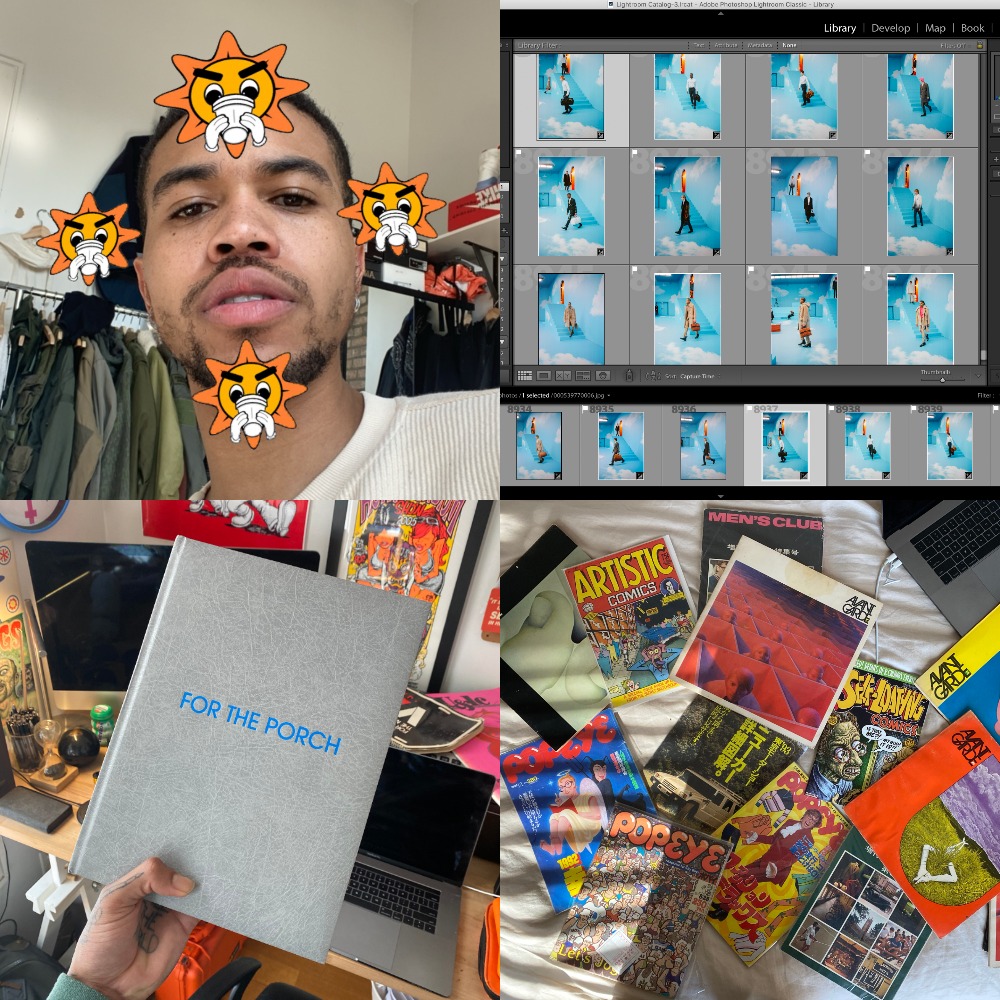
Cam Hicks, photographer, Brooklyn
How has COVID-19 affected your life and work?
I’m a people person, so it definitely has been disappointing not being able to see all my homies and my family. I also get crazy cabin fever and randomly bounce off the walls, so being cooped up causes that to happen more frequently.
In terms of work, besides all content creation really being on standstill, the virus spike came through right before the release of my first book, For The Porch. So the release of that and the book signing with Dover Street Market is on hold until it’s all settled. I’ve been staying patient knowing this is a situation out of my control, but inevitably I’ve been frustrated and disappointed. But I’m a believer in the idea that everything happens for a reason, so that moment will happen when it’s supposed to.
I’m taking advantage of the down time and getting things done without the usual pressure of everyday life.
How have you been spending the isolation period?
Besides watching old movies, and rewatching my favourite tv shows, I’ve taken time to do personal work, organise my reference catalog, revisiting old photos and creating new visuals from them, and other tactics that make my workflow easier.
Before this all, just like a lot of my peers, I had a lot of personal to-do’s that would be put on the back burner living here in NY. It demands a fast lifestyle and staying consistent on the work front, so even though I miss working, I’m taking advantage of the down time and getting things done without the usual pressure of everyday life.
What is the first thing you’ll do when quarantine is over?
Drop my book, celebrate the hard work from that and reunite with all my homies and family. Then I’ll probably rent a lake house with friends and get away from the city and spend some quality time with nature. Being a Virginia boy, I miss the trees and big fields of grass.

Kelly Lim, freelance writer, Kuala Lumpur, Malaysia
How has the COVID-19 outbreak affected your work and life?
I grew up in Shanghai then moved to London, so I was excited to rediscover my heritage and explore the creative scene in KL after moving back a month ago. But now everything’s shut, everyone’s working from home and the government’s taking stricter measures day-by-day to enforce movement control. Roadblocks have been put up and the police are monitoring people at grocery shops to make sure everyone stays a safe distance from each other.
How have you been spending the isolation period?
We’ve been in movement control for about a few weeks now. I’ve started writing for a local magazine, so that takes up most of my time, but I try to make each day different to stay sane and productive. My body clock hates me because I’m up some days until 5AM planning projects with people in different time zones or seeing my friends on Houseparty. I’m living with my cousin for the moment so it’s been really nice to spend time with her and cook together. I’ve also started painting again, recently rewatched Hou Hsiao-hsien’s Millennium Mambo and am reading Shantaram by Gregory David Roberts.
The word for crisis in Chinese is 危机, which also bears the meaning of opportunity and in this case, that has never been truer.
What have you learned during this time?
How to slow down and the importance and strength of community, both online and offline. Social distancing is purely physical. Every night, people around KL have been shouting words of encouragement and flashing their lights from their apartments as a sign of solidarity and support for the medical frontline. It also feels like there’s less competition and more compassion and support between creatives.
Local DJs are challenging each other on Instagram to stream local artists on the radio and share tracks they’ve made during isolation. We’re finding alternative ways to continue creating — I recently did a transatlantic FaceTime shoot as part of a friend’s project. The word for crisis in Chinese is 危机, which also bears the meaning of opportunity and in this case that has never been truer.
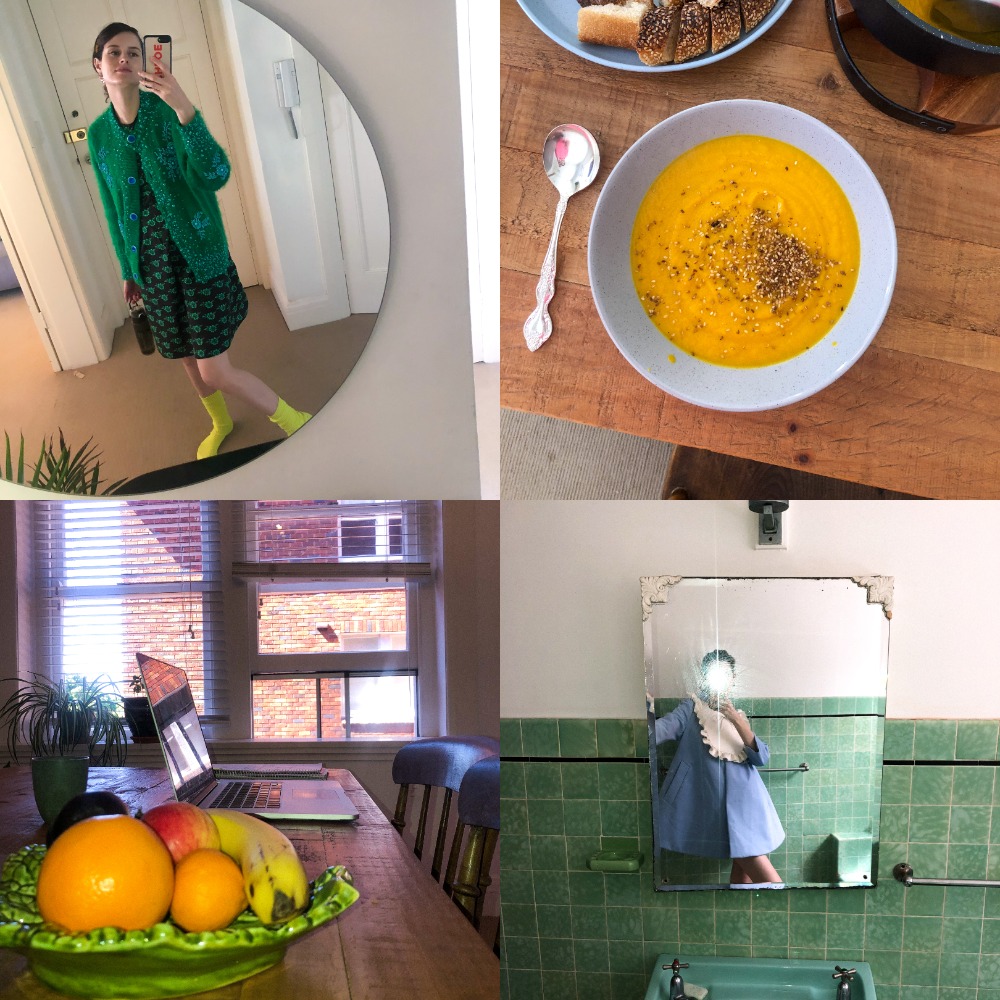
Chloe Hill ( @chloechill ), stylist, from New Zealand, based in Australia
Can you tell us a little bit about the COVID-19 crisis in your area?
I arrived back in Sydney this week after almost two months in Europe and the USA, so what I’m seeing here is similar to what I experienced when Italy and France were at the start of their outbreaks. After spending a very secluded week in LA on my way back to Sydney, I started to really realise the importance of self-isolation (I wish I had sooner). Although I arrived before the government here announced an enforced lockdown, I decided to avoid leaving the house as much as possible. I made one trip to the mall and supermarket when I first arrived, which I now regret. If as many of us stay at home as possible, it will make a huge difference.
How has COVID-19 affected your life and work?
I was planning to come back and really get back to work, making the assumption that as usual arriving back in Sydney would bring with it a whole lot of new jobs. Of course almost everything is on hold, or cancelled all together so I’m taking every new day as it comes. I’m lucky to be in a position where I’m staying with my sister and able to cover rent for a few months, so I’m trying not to be too stressed. But I realise so many freelancers don’t have that luxury, we need the government to really put protections in place for everyone.
Having been freelance for over three years, I’m putting into practice a lot of strategies I learned when I’ve had downtime in the past.
What have you learned during this time?
Having been freelance for over three years, I’m putting into practice a lot of strategies I’ve learnt when I’ve had downtime in the past. Practicing calmness, being realistic (no, I don’t have to achieve 20 things in a day) and enjoying simple things like a toasted hot cross bun [laughs]. I’ve also been reminded of the joy fashion can bring; Every day I’ve been dressing up in an outfit that makes me happy, practicing makeup I might not ever wear outside the house. So cheesy, but it really sets a positive tone for my day.
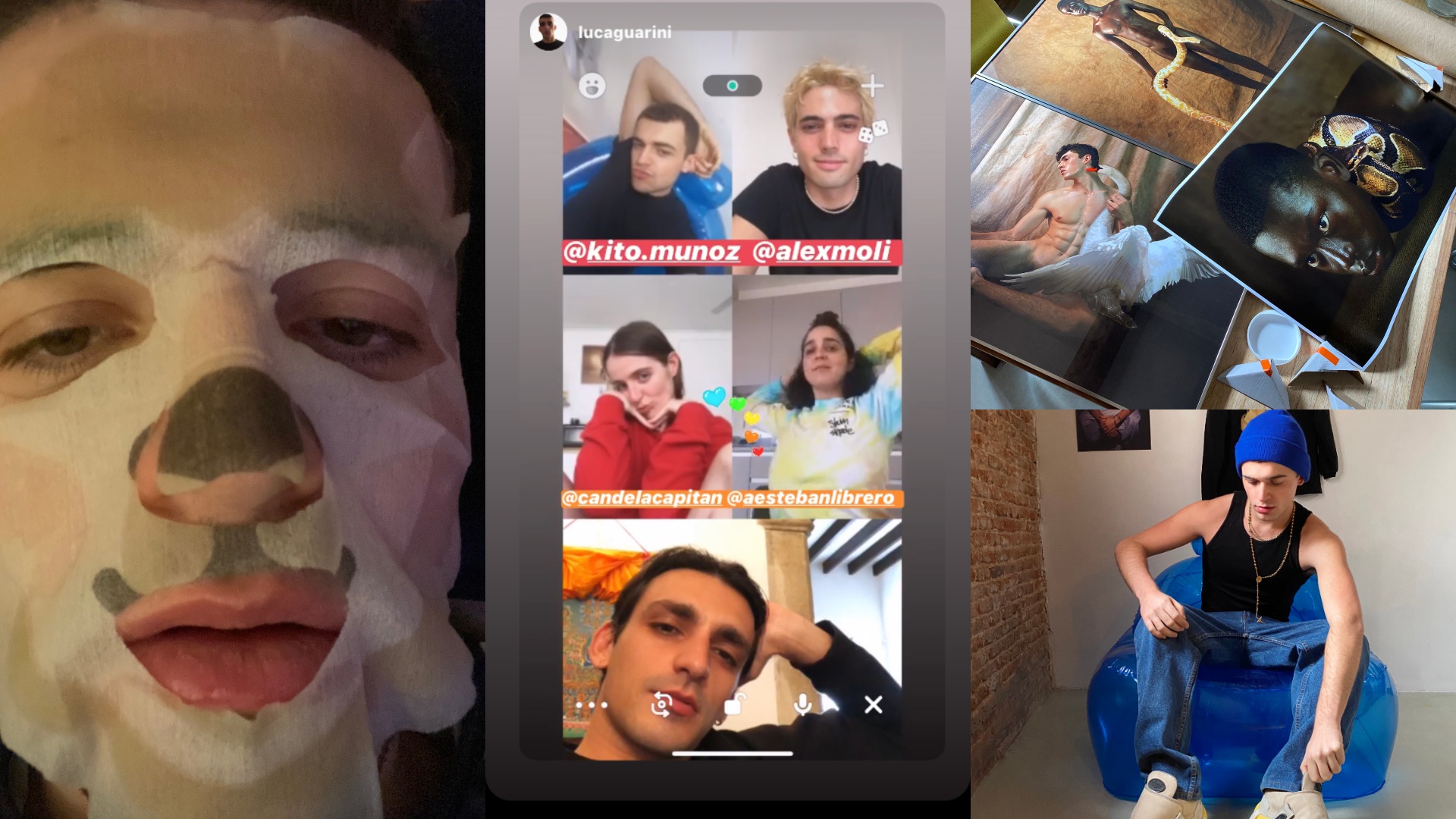
Kito Munoz, Photographer, Madrid
How has the coronavirus affected your life and work?
I am at home all the time, I take everything very calmly, learning to be patient… I have no shooting dates until May.
How have you been spending the quarantine period?
I really like being at home, the days go by quickly, I’m getting up late, researching on the internet, watching movies on Filmin. I’m with my friend Jorge, with whom I cook and we play sports in the little corner that we have. The only thing that I miss is a terrace.
What have you learned from having all this unexpected time on your hands?
I want to live in a bigger apartment with a terrace.
What will be the first thing you do when your quarantine period is over?
Hang out with all my friends and enjoy the outdoors.
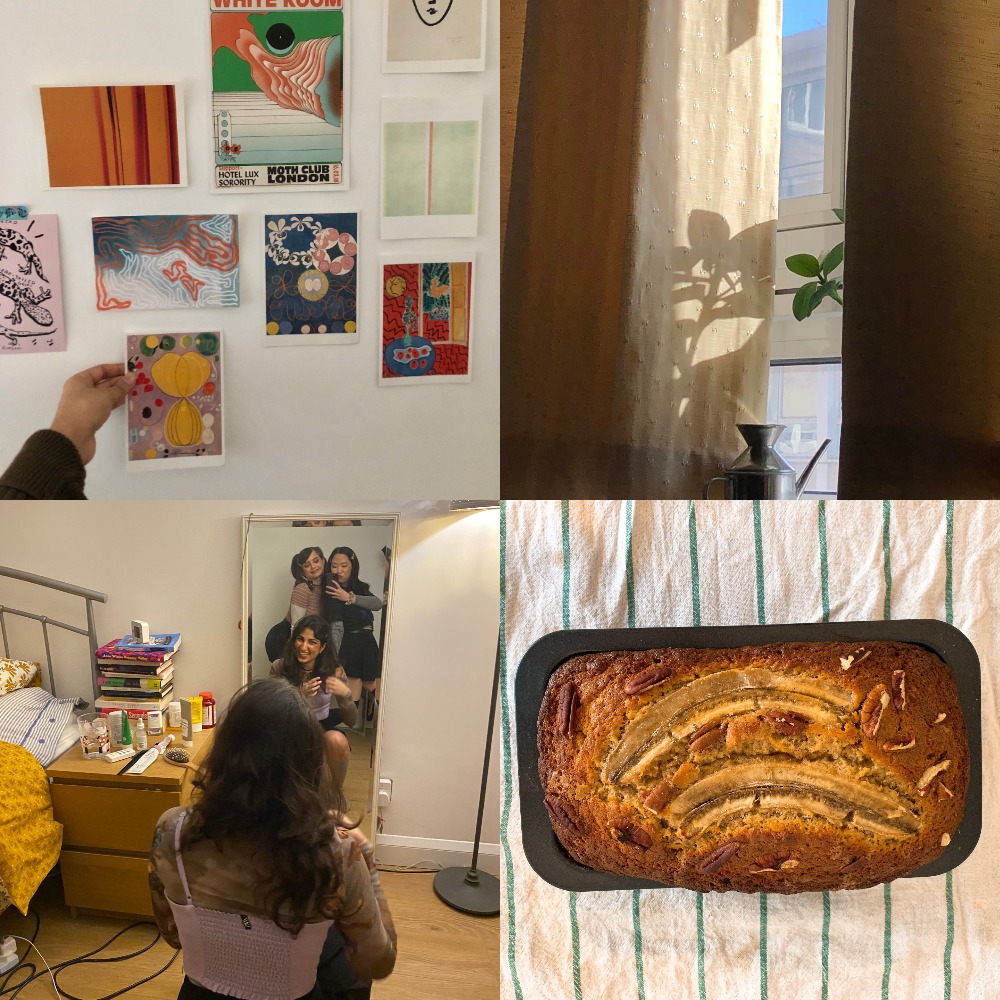
Jenna Mahale, freelance writer and editor, London, England
How has the COVID-19 outbreak affected your work and life?
I work from my bedroom most days ordinarily, so the transition to working from home hasn’t been too much of a radical change for me. I’ve been freelance since I finished my undergraduate degree last summer. Maintaining a steady flow of freelance work is tough at the best of times, but the pandemic has really killed a lot of publications’ commissioning budgets, so I’m definitely less occupied than I normally would be.
It’s been tough to be away from my friends — though I’m lucky enough to live with two of my best ones, and I’ve never been afraid of phone calls, so I’m talking to everyone a lot. When I do go outside it’s hard to see the city so empty, because it feels like it’s had all the life drained out of it.
My flatmates and I have agreed to throw a party every weekend, for the sake of our sanity.
How have you been spending the isolation period?
Vacuuming every conceivable surface in my room, rearranging all of my furniture, cooking multiple Alison Roman dishes per day. I usually spend a good amount of time comfort-watching TV online, but the usual just isn’t cutting it anymore. I’m finding films more satisfying to watch than television at the moment, and I’ve been trying to get in bed by 10PM latest (bizarre) so I can watch one before I sleep, and make the most of my remaining MUBI trial.
My flatmates and I have agreed to throw a party every weekend, for the sake of our sanity. We get dressed up, often to a theme, and split two bottles of wine between the three of us — one red and one white. I think it’s working out pretty well.
What have you learned during this time? What is the first thing you’ll do when this is over?
I actually don’t know. I can’t really imagine what the world is going to look like at that point.
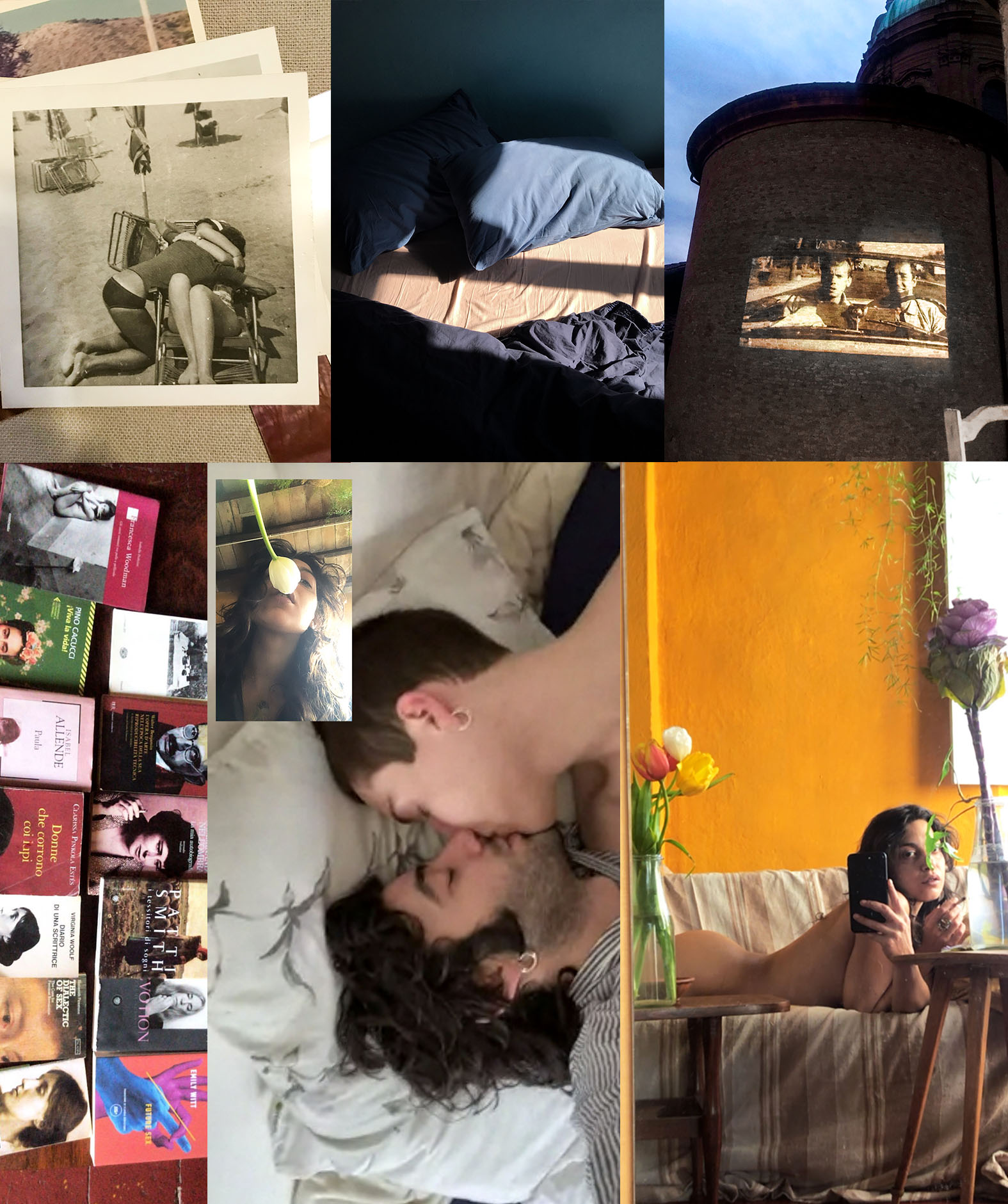
Maria Clara Macrì, photographer, Reggio Emilia, Italy
What effect has lockdown had on your life and your work?
Although my home has been the place where I work for years, this emergency situation has ripped apart my plans and my workflow, filling my routine with new anxieties and stimuli. My own photography is changing according to new needs: I don’t know when I will see my last rolls. But somehow I have not sink into the abyss — I put in place virtuous mechanisms to be able to work without going out anyway, and I am constantly producing and writing.
The limitation of the freedom of movement can generate claustrophobia, but the mind is a wonderful vehicle and we must now prepare the rebirth that will come when everything has passed.
How are you reacting to the situation?
I try to look at the richness of this moment, taking care of my mental and physical health. I certainly have all the worries freelancers may have right now, as the meanings of freedom and mobility have been questioned. I decided to watch the news only once a day to maintain creative control and serenity throughout the day. I let myself be carried away by music, then I work on editing the new project and on my archive. In the evening I dedicate myself to the study of queer literature and gender studies. At night I write everything I hear, I write down my inspirations and things to do the next day. The only way I have found to live with these concerns is to live the here and now in my body, in my home, knowing that I am doing the only thing I can do for the good of the community and for mine.
What are you learning thanks to quarantine?
I make video calls with friends, especially artists. The exchange of our experiences is becoming vital for me, and I think for them too. Finally we have time to understand ourselves without the frenzy of the expiration dates. A fundamental element for me and my work is empathy, which I am not giving up thanks to social networks, it seems to me that at the moment we are experiencing them in a new and radical form — this is a very strong stimulus. The limitation of the freedom of movement can generate claustrophobia, but the mind is a wonderful vehicle and we must now prepare the rebirth that will come when everything has passed.
